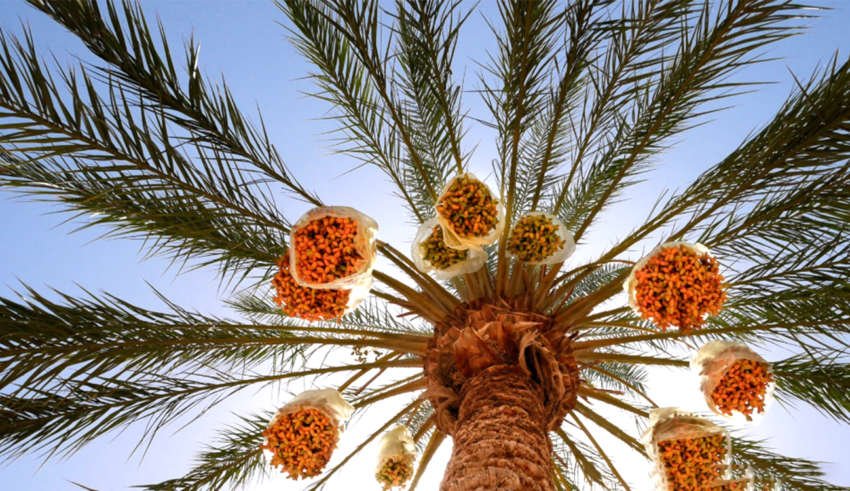Tunisian growers are seeing an improvement in the situation
The last season for Tunisian dates was severely impacted by adverse weather conditions, resulting in a loss of nearly half the expected harvest volume and a decline in quality and export prices. By July 2024, signs of the season’s demise were already noticeable. A year later, Tunisian growers are seeing an improvement in the situation, which bodes well for the upcoming season beginning in October 2025.

Noureddine Saidi, manager of Bioorigin Fruits Tunisia, recounts last season’s debacle: “Climate change had already been causing us difficulties for seven years, but its effects were particularly severe last year. The torrential rains in October, right during harvest time, caused fermentation problems. In July already, we noticed a significant mite infestation, which added to other problems, such as water and soil salinity.”
“The mite attack occurred at a time when growers were already financially exhausted from successive crises since the outbreak of the COVID-19 pandemic. Few had protected their date palms with net bags, resulting in widespread damage. All these factors combined led to a 45-55% loss in volume; export prices fell by 8-10%, and export volumes dropped from 144,000 tons in 2023-2024 to 120,000 tons in 2024-2025,” Saidi continues.

According to the grower, Tunisia’s date industry is dominated by small-scale producers. Many of these producers have less than one hectare of land, which makes the cost of preventive agricultural operations, such as purchasing mosquito net bags, prohibitive. “However, producers realize that this is essential. We are seeing a very different situation this season. The impact of pests has been minimal, which bodes well for next season. The climate situation has also improved significantly. It remains to be seen how the harvest period will unfold, but we are seeing four distinct seasons, which is something we haven’t seen in years.”
The grower says he expects a return to normal volumes nationwide: “Everything indicates that we will reach a harvest of at least 310 thousand tonnes, which is still a conservative estimate beyond the record 340 thousand tonnes. We are also seeing signs of excellent fruit quality, including large sizes.”

Above all, Tunisian producers and exporters hope for improved prices to offset last season’s losses. According to Saidi, the decline in quality resulted in high sorting costs, and exporters had many shipments returned. Stocks are now almost depleted, and the next season will begin with virtually no Tunisian dates on the market. He concludes, “Considering the quality improvement, I expect prices for conventional dates to rise 7-10% compared to the 2023-2024 season and prices for organic dates to rise 15%.”
Tunisia’s date production covers nearly 50,000 hectares, with an annual volume of around 340,000 tons and an export volume of 144 thousand tonnes. The Deglet Nour variety is the country’s most famous date and dominates the surface area, volume, and exports, with a production of 280 thousand tonnes and an export volume of 125 thousand tonnes destined for 83 countries.
TunisianMonitorOnline (Source: Fresh Plaza)




